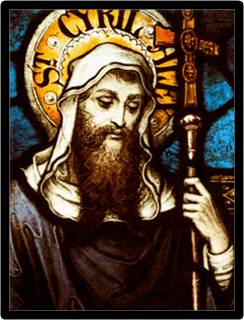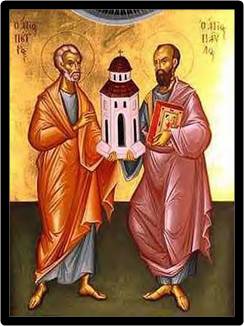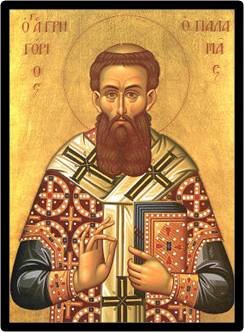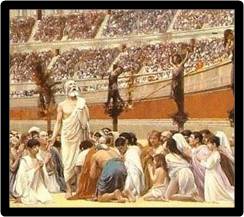JUNE 27 - ST. CYRIL OF ALEXANDRIA

Cyril was born at Alexandria in Egypt. His uncle, Theophilus, was the patriarch or archbishop of Alexandria. Although his uncle meant no harm, he had a bad temper and could be very stubborn at times.
Archbishop Theophilus sent the Bishop of Constantinople, St. John Chrysostom into exile in 403. Cyril who was influenced by his uncle’s dislike of John, agreed when John was sent into exile. But the emperor brought the famous bishop back to his archdiocese of Constantinople.
When his uncle died in 412, Cyril became the archbishop of Alexandria. His love for the Church and for Jesus was very strong. He was a brave man in times when the Church was confused and clearly preached the teachings of the Church. He was honest and straightforward and was not interested in praise or high positions.
However, Cyril like his uncle Theophilus, could be impulsive and stubborn at times. He explained the truths of the Church with his preaching and writing. But when he got upset, what he said was sometimes difficult to understand. He did not always bother saying things in a gentle manner and blurted out angrily at times.
His lack of self-control made him sad. Yet Christians were grateful for his many wonderful qualities. For example, he was not afraid to defend the Church and what we believe. He also had a great devotion to the Blessed Virgin Mary and lovingly defended her from evil people who tried to harm her holy name.
St. Cyril was the representative of Pope St. Celestine I at the Council of Ephesus in 431. This was an official Church meeting of over two hundred bishops. They had to study the teachings of a priest named Nestorius who preached that there were two persons in Christ. The Council explained clearly that Nestorius was wrong.
The pope gave him ten days to say he would stop preaching what was wrong. But Nestorius would not agree. The bishops at the Council clearly explained to the people of God that these were false teachings and the people were convinced. This would never again be a major threat to the Church.
The people were very grateful to St. Cyril of Alexandria who led the Council meetings. Nestorius went quietly back to his monastery and stopped confusing people. Cyril went back to his archdiocese and worked hard for the Church until he died in 444. Pope Leo XIII proclaimed St. Cyril a Doctor of the Church in 1883.



